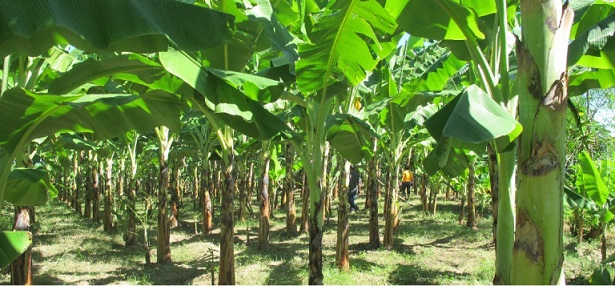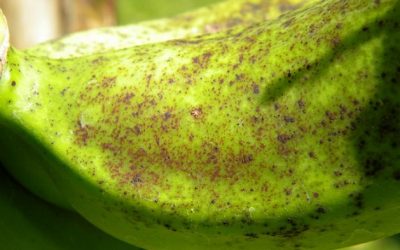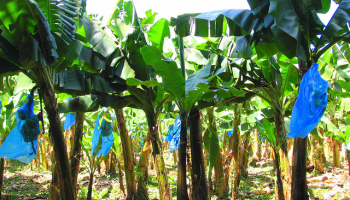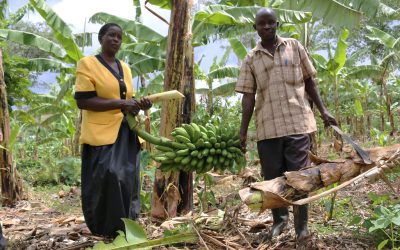Field sanitation, important for disease prevention.

Most farmers think that use of pesticide is the most effective strategy for combating diseases. But according to experts, that is a fallacy.
Sanitation is one of the effective tactics in disease management strategy in the field.
Field sanitation includes any practices that aims to prevent the spread of pathogens by removing diseased and asymptomatic infected tissue, as well as decontaminating tools, equipment and washing hands.
Good field sanitation reduces pathogen inoculum which is also termed as “seeds” of the pathogen. “Consistent and effective sanitation practices,” he says, “greatly increases the chances of raising healthy plants.”
Planting
Sanitation in the field needs to take place before, during and after the growing season.
Prior to planting, fine-tune your weed management plan. He explains that most weeds are reservoirs for plant pathogens and insects. By controlling weed populations in your fields, you can reduce pathogens and their vector populations.
Weeds create a lot of pressure for farmers. But knowing the weed profiles and learning how to keep fields clean is crucial.
Therefore, early planting to deal with weed resistance. The earlier you plant, the longer the window weeds have to grow. Delayed weed control leads to a sizable percentage loss of potential yield.
Keeping weeds under control also means keeping the surroundings of your farm free of weeds, unless they are maintained and intended as habitat for natural enemies or as barriers.
Clean and disinfect farm tools
Farm tools can be a big vehicle through which diseases are transmitted on the farm or between farms. Farmers ought to be vigilant and clean farm equipment from the previous season’s residue.
Placing equipment like hoes and machetes to a flame of fire or using dilute bleach such as Jik to disinfect equipment before it is used on another farm.
Washing soil off of farm equipment, including brushing off soil particles from farm shoes. This is an effective way to stop the spread of soil borne pathogens such as White mold and different species of Fusarium. Washing tools with soapy water and dip or wiped in ethanol-based products.
Tool sanitation goes hand in hand with hand-washing to minimise plant-to-plant spread of diseases caused by several bacteria and viruses.
For example, if spider mites are present on a crop they will surely move to the newly planted. If the old infested crop is upwind the pests will almost certainly be blown onto the new crop. If possible, get rid of the old crop first.
In vegetable farming, where bamboo poles are used to support crops such as tomato, they should be disinfected before being used for a second time as disease pathogens and pests may be present on them.
Remove infected plants
As soon as symptoms of a given disease appear, do away with the plants. Removing infected plants from the field can reduce the amount of pathogen inoculum that could move into healthy plant parts. For the case of tomatoes, the farmer should make sure to destroy the plants. It is not advisable to put them in your compost bin.
Proper disposal of all the infected plants and crop residues after harvesting. Crop residues can be composted, buried underground or burnt.
Use resistant plants or cultivars
Diseases such as black sigatoka, which cause enormous losses in banana plantations, can be managed through hybrids especially NaroBan 1,2,3,4 and 5. The latest variety, NaroBan 5 (M30) is resistant to weevils, nematodes, and black sigatoka on top of having desired food qualities.
Researchers are increasingly focusing on disease-resistant varieties and it is these that should be adopted.
Ploughing
Ploughing is a helpful intervention in farming. Fields should be ploughed under the crop residues and organic mulches. This is one of the interventions in managing the fall armyworm.
This not only improves soil condition, it also helps to disrupt the pest’s lifecycle. The pests are exposed to extreme temperature, mechanical injury, and predators.
Crop sanitation
Field sanitation is the practice of safe hygiene in field conditions to maintain environmental health. It is used by travelling militaries, field workers harvesting crops, campers, and other people who spend time outdoors in environments which lack urban sanitation.
Sanitation practice:
•Remove plant debris and infected plants as soon as symptoms appear
•Disinfect knives, shears and other harvesting tools often.
•Frequent hand-washing with clean water and soap.
•Wash soil off farm equipment and shoes.
•Keep weeds under control at all times.


